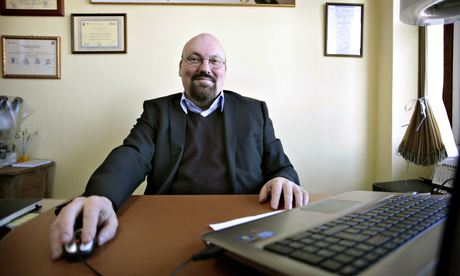
A Spanish man who has spent the past five years waging a legal battle against Google over the "right to be forgotten" on the internet has applauded a landmark European Court ruling against Google on Tuesday.
"Like anyone would be when you tell them they're right, I'm happy," Mario Costeja González told the Guardian over the phone from the north-western city of A Coruña. "I've been saying to people, if Google was good before, now it's perfect."
The ruling says that Google and other search engines must remove data from past results if requested to do so by a member of the public.
Costeja González's battle began in 2009, when Costeja he discovered that a Google search of his name pulled up legal notices from the late 1990s, and after a fruitless conforntation with the publishing newspaper he eventually found allies at Spain's data protection agency.
Tuesday's ruling has implications for all online search engines, in that it notes that European privacy law allows the public to request that links to private information be removed. The court specified that search engines operating in Europe must find a balance between offering information in the public interest and protecting people's rights to privacy and protection of personal data. When an agreement cannot be reached, the ruling said the matter can be taken to a local judge or regulator.
Complaints will be addressed on a case-by-case basis, an approach that should appease any worries Google might have had about freedom of expression, said Costeja. "They don't have to get rid of everything.
"I was fighting for the elimination of data that adversely affects people's honour, dignity and exposes their private lives. Everything that undermines human beings, that's not freedom of expression."
He framed the ruling as a decisive victory in a long-running battle over an idea. "People ask me how much I spent on this. It did cost me money but at the end all that's important is the fact that ideas won out." He refused to even estimate what he had personally spent on the case, saying that a number would only "dirty what was a fight for ideals".
For his lawyer, Joaquín Muñoz, a key point in Tuesday's ruling was the recognition that search engines are involved in processing data. "When you search for something in Google, they don't scour the entire internet for you and then give you a result. They've stored links, organised them and they show them based on a criteria they've decided upon." This act of processing information confers upon them responsibilities in certain cases, he added.
The ruling would now be used to address the more than 200 cases waiting in Spanish courts, he said, the majority of which involve asking Google to eliminate links. The cases will likely test the limits of this ruling; in one case, a plastic surgeon in Madrid has asked Google to remove a link to a 1991 El País report about a malpractice lawsuit launched against him after an allegedly botched breast surgery.
It's one of the many questions about the ruling to be answered in the days to come, said Muñoz. But on Tuesday he was content to bask in the idea that Abanlex, his tiny law firm based in Madrid, had taken on Google and won. "The resources Google has at their disposal aren't like those of any other citizens."

